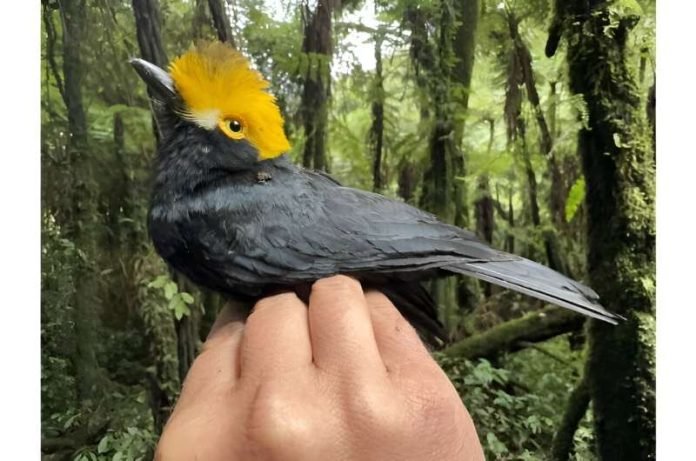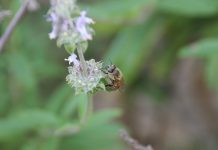
For the first time in nearly two decades, scientists have captured photographs of a bird once thought to be lost from the world.
The Yellow-crested Helmetshrike, known scientifically as Prionops alberti, was discovered during an expedition in the Itombwe Massif, a remote mountain range in the eastern Democratic Republic of the Congo.
This significant find was made by a team from the University of Texas at El Paso (UTEP), bringing new hope to conservationists and bird enthusiasts alike.
The American Bird Conservancy had listed this species as a ‘lost bird’ due to the lack of sightings over the years.
The recent expedition, however, led by UTEP’s Michael Harvey, Ph.D., and Eli Greenbaum, Ph.D., alongside Matt Brady and several Congolese researchers, has reignited interest in the bird’s conservation.
The expedition team trekked over 75 miles by foot through challenging terrain, studying not only birds but also amphibians and reptiles along their journey.
The rediscovery occurred in the cloud forests of the Itombwe Massif, where Harvey and Brady came across the helmetshrike.
Described as a striking black bird with a distinctive bright yellow “helmet,” the bird was observed in active, noisy groups within the midstory of the forest.
This bird is unique to the western slopes of the Albertine Rift in Central Africa, a region that has been largely inaccessible due to conflict but has recently become safer to explore.
The team’s encounter with about 18 helmetshrikes across three different sites offers hope that a healthy population may still exist in the region’s remote forests.
However, the threat of mining, logging, and deforestation for agriculture poses significant risks to their habitat. The UTEP team is now working with other researchers and conservation organizations to protect these critical forests and the species that call them home.
This discovery was part of a larger expedition that took place from December 2023 to January 2024, which also led to the rediscovery of the Red-bellied Squeaker Frog, another species not seen since the 1950s.
These findings underscore the importance of protecting remote and previously inaccessible areas to ensure the survival of unknown or thought-to-be-lost species.
The success of the UTEP team in the Itombwe Massif highlights the critical role of field research in conservation efforts and the discovery of lost species.
It serves as a reminder of the vast unknowns still present in natural environments around the world and the ongoing need for exploration and preservation.
Copyright © 2024 Knowridge Science Report. All rights reserved.



